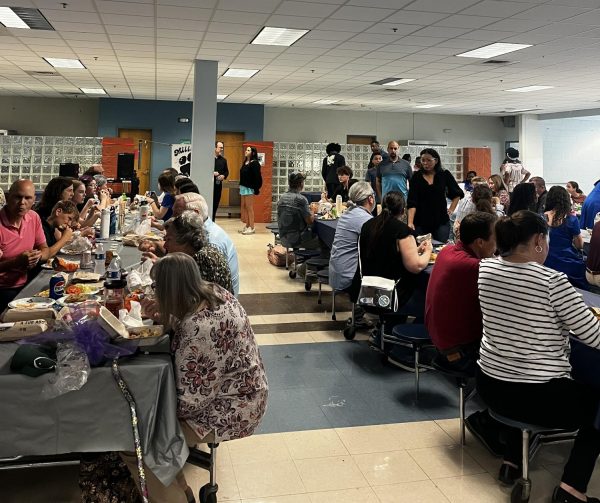World Demystified
What is the deal with the Iran Nuclear Deal?
Standing before their flags, these foreign ministers were discussing the aspects of the Iran Nuclear Deal. This deal ensures that Iran will not be able to create nuclear weapons as easily as before.
May 22, 2018
Nuclear weapons have been in the news quite a bit lately, for various reasons, one of which being the Iran Nuclear Deal. Essentially, the Iran Nuclear Deal, officially named the Joint Comprehensive Plan of Action, is an agreement between Iran and China, France, Russia, the United Kingdom, the United States, and Germany, ensuring that Iran will decrease their ability to make nuclear weapons.
Contrary to some beliefs, the Iran Nuclear Deal did not stop all of Iran’s nuclear program. However, it did greatly reduce the amount of uranium and facilities specifically made for creating nuclear weapons. Most of their facilities are being repurposed for research, industrial, and medical uses. These facilities are checked routinely by inspectors from the International Atomic Energy Agency. The Iran Nuclear Deal was signed in July of 2015 and officially began in January of 2016, although it had been in the works for almost two years before the signing.
Although the Iran Nuclear Deal is, in theory, only about nuclear weapons, there is more to this deal than meets the eye. One of the reasons that Iran was open to this deal was what they got out of it. In exchange for keeping up with their side of the bargain, sanctions that the United States, European Union, and United Nations previously held against Iran were lifted. It was intended to help heal Iran’s economy, which was greatly injured by the sanctions.
One of the main issues with the Iran Nuclear Deal is the tension growing between Iran and the United States. Because President Trump highlighted that he would be more aggressive when dealing with Iran as part of his campaign, numerous businesses have kept from investing in Iran. These investments would have helped improve Iran’s economy, and the loss of these investments have harmed Iran’s economy. Iranians are upset because the economy has not recovered since the deal which was their the main cause for Iranian involvement. The United States is not happy since there are more protests in Iran due to the economy issue, prompting the United States to try quelching it. President Trump declared that he would halt the United States’ involvement in the Iran Nuclear Deal if Congress does not work with others to change some terms of the deal. However, it appears that it will not possible for changes to be made to the deal while keeping Iran happy as well. This means the other countries that are a part of the deal need to keep the United States in the deal in order for the deal to survive.
Hopefully, the continuation of President Trump threatening to take the United States out of the deal will encourage Iran to try to help their economy recover, as well as keep the peace in their country. Since there are benefits and drawbacks to the deal, the debate of keeping the Iran Nuclear Deal is still argued. Most believe the Iran Nuclear Deal should still continue because, as senior Alexandra Tyer said, “With everything going on in Iran as it is, I think their main focus should be bettering their living conditions and economy, not building nuclear weapons.” Nevertheless, it seems as though this issue might continue, at least for a while more.












